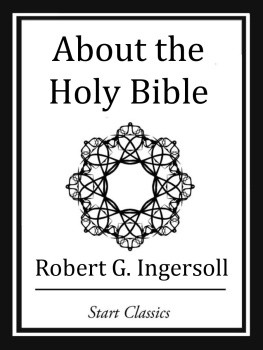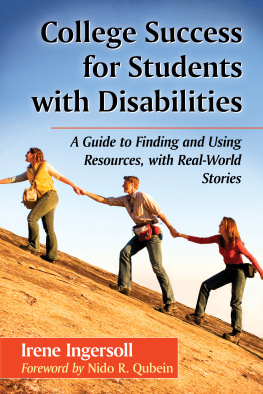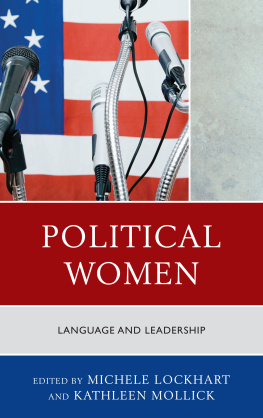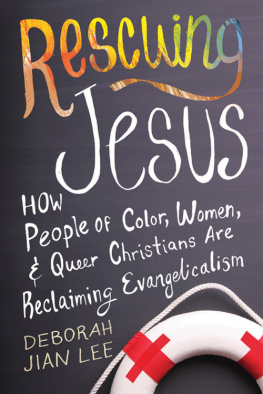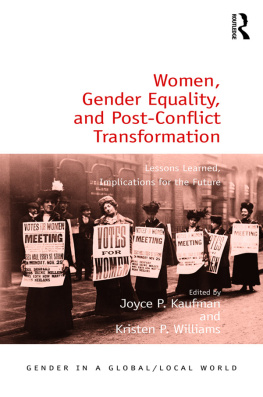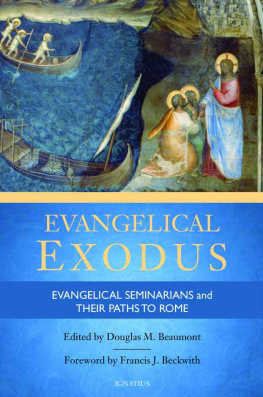Thank you for buying this ebook, published by NYU Press.
Sign up for our e-newsletters to receive information about forthcoming books, special discounts, and more!
Sign Up!
About NYU Press
A publisher of original scholarship since its founding in 1916, New York University Press Produces more than 100 new books each year, with a backlist of 3,000 titles in print. Working across the humanities and social sciences, NYU Press has award-winning lists in sociology, law, cultural and American studies, religion, American history, anthropology, politics, criminology, media and communication, literary studies, and psychology.
Evangelical Christian Women
QUALITATIVE STUDIES IN RELIGION
GENERAL EDITORS: Penny Edgell Becker and Mary Jo Neitz
The Qualitative Studies in Religion series was founded to make a place for careful, sustained, engaged reflection on the link between the kinds of qualitative methods being used and the resulting shape, tone, and substance of our empirical work on religion. We seek to showcase a wide range of qualitative methodologies, including ethnography; analysis of religious texts, discourses, rituals, and daily practices; in-depth interviews and life histories; and narrative analyses. We present empirical studies from diverse disciplines that address a particular problem or argument in the study of religion. We welcome a variety of approaches, including those drawing on multiple qualitative methods or combining qualitative and quantitative methods. We believe that excellent empirical studies can best further a critical discussion of the links among methods, epistemology, and social scientific theory and thereby help to reconceptualize core problems and to advance our understanding of religion and society.
Evangelical Christian Women: War Stories in the Gender Battles Julie Ingersoll
Evangelical Christian Women
War Stories in the Gender Battles
Julie Ingersoll
*

NEW YORK UNIVERSITY PRESS
New York and London
www.nyupress.org
2003 by New York University
All rights reserved
Library of Congress Cataloging-in-Publication Data Ingersoll, Julie.
Evangelical Christian women :
war stories in the gender battles / Julie Ingersoll
p. cm. (Qualitative studies in religion)
Includes bibliographical references and index.
ISBN 0-8147-3769-2 (alk. paper)
ISBN 0-8147-3770-6 (pbk : alk. paper)
1. Women in fundamentalist churchesHistory20th century.
2. Sex roleReligious AspectsChristianityHistory of doctrines20th century.
3. Protestant womenUnited StatesHistory20th century.
4. EvangelicalismUnited StatesHistory20th century. I. Title. II. Series.
BX7800.F864I54 2003
280.40820973dc22 2003016366
New York University Press books are printed on acid-free paper,
and their binding materials are chosen for strength and durability.
Manufactured in the United States of America
10 9 8 7 6 5 4 3 2 1
For my parents,
who encouraged my incessant questions.
Contents
Acknowledgments
Writing the acknowledgments section of this book is at once gratifying and daunting. It is an opportunity to reflect on many years of friendship and collegiality; at the same time, it is a task I know I can never adequately perform.
My first offer of thanks has to go to the many people who opened their lives (and sometimes their homes) to tell me their stories; some of them are named within, and others are not. Without them, there would be no book. I hope that I have presented the many things they shared with me in ways that honor them and their lives.
Second only to the people whose stories Ive told, I want to thank Wade Clark Roof and Terry Roof. Clark was my mentor at the University of California, where he supervised this research as my doctoral dissertation. He and Terry built a community among UCSB graduate students that shaped me as a scholar and as a person.
Several people have read this manuscript and offered valuable feedback for which I am grateful. Of course, the first of these were my additional dissertation committee members: Phillip Hammond, the late Walter Capps, and Catherine Albanese. Friends and colleagues who have read part or all of the manuscript include Diana Garland, Diana Butler-Bass, Russell T. McCutcheon, Edward Linenthal, Betty DeBerg, and the editors of this series, Mary Jo Neitz and Penny Egdell. Their encouragement and gentle criticism have made this book tremendously better. Parts of this analysis also appeared in a volume entitled Personal Knowledge and Beyond, edited by J. Shawn Landres, James Spickard, and Meredith McQuire, each of whom helped me clarify my arguments and improved the analysis of this larger project.
I have benefited greatly from an ongoing conversation with friends and colleagues: first, those with the UCSB Religious Studies Program, in particular the faculty, several alumni, and my own contemporaries; second, those at the Society for the Scientific Study of Religion, where I have, since my second year of graduate school, presented my work; third, the members of the Faculty Seminar at the University of North Florida. Thanks to you all for challenging me to think in new ways by commenting on my work, by exposing me to yours, and, most important, by offering your friendship.
Members and leaders of several organizations assisted in my research, including Christians for Biblical Equality, the Hestenes Center for Christian Women in Leadership, the Evangelical Womens Caucus, and the Oregon Extension of Houghton College. They opened their libraries, helped me make important contacts, and often also provided hospitality as I traveled to do research.
My dissertation research was generously supported by grants from the following institutions: the University of California Santa Barbara Affiliates; the Society for the Scientific Study of Religion; Re-Forming the Center Project, at Messiah College, which was, in turn, funded by the Lilly Endowment; the Religion in Los Angeles Project, funded by the Pew Charitable Trusts; the Louisville Institute; and Southwest Missouri State University.
Jennifer Hammer, my editor at New York University Press, deserves much credit for seeing this project to completion. Several years ago, Jennifer contacted me after learning of a paper I was presenting at a conference. She was building a Religious Studies list and had taken a long view of things, to say the least. She stayed in touch with me through the years of research, writing, graduation, and then distractions as I took a series of temporary teaching positions. She gently kept me on track without adding to the guilt I already felt about not doing things as quickly as I thought I should.
The material in this book has made its way into classrooms at Millsaps College, Rhodes College, Southwest Missouri State University, and the University of North Florida. Students are always quick to question conventional scholarly wisdom, and they keep me (and my work) real.
Finally, Arminius (the dog, not the theologian) who has been my companion for nearly fifteen years.
My deepest thanks to you all.
Introduction
But as I started thinking through all this I got seriously suicidal on several occasions. This spring, I just thought about taking huge doses of antidepressants. There were several times I had just made up my mind that this was it. Then it dawned on me. I began to understand where my theology was leading me: God created me a woman. That was His choice. Somebody, somewhere along the line at creation gave me those giftsI really am a preacher and a teacher. And the one place in my life I wanted to exercise what I am is in the Church, because that was the thing I loved the best. But although God created me a woman and, one must assume, gave me those [teaching and preaching] gifts, He also makes it impossible for me to please Him. Because to please Him would be to exercise the fullness of who I am, I cant please Him in the institution that represents Him. So the only way, ultimately, that I could please God would be to kill myself. Because nothing I could ever do as a living human being, because of being a woman, could ever please God.
Next page


